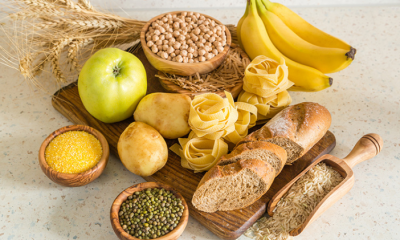6 Best Regimen To Power Up Your Marathon Training – By Aboutnutra
A balanced runner’s diet provides you the capacity to finish the marathon. Follow these six tips to make your working more comfortable. Marathon training is among the most challenging jobs for Athletes along with your diet may play a significant part in your marathon achievement. Your Everyday energy comes from the foods you eat each day with that in mind, and your daily diet should Supply you with energy that should keep you going during your marathon training.
-
Eat a Balanced Diet For Marathon Training.
Running a marathon is generally a reasonable explanation for a few, It’s easy to think that after burning over 1,000 calories throughout a single run should allow you to eat anything you would like. While adding more nutrients to your daily diet is critical, you need to be mindful that a well-balanced diet is the most important.
Protein and fat which could support your energy needs. Adding more fat to your Diet can help you in your long term days.
-
Eat Healthful Carbs.
Some sources state that you should eat carbs as a Means to Store as much nourishment as possible for your runs, but the reality is this should not matter for long distance runs.
Carbohydrates are used to supply rapid bursts of energy, which is not exactly what you can do during a marathon. Because of this, increasing the amount of fat you consume each day can help to give you the fuel you will need for extended distance runs, but also make sure to eat healthy carbs.
Look at eating carbs that provide energy that requires longer breaking down — slow digesting foods.
-
Proper Hydration.
One of the most critical aspects of your marathon training Is proper hydration. Marathon training can surely raise your body’s demands of water replenishment.
Studies have shown that proper hydration Can Help cut back on fluid loss and help to improve performance among endurance athletes, indicating that adequate hydration may be the trick to success in your training.
While there is no magic Quantity of water you need to drink for Adequate hydration, you need to sip some water during daily for best results.
Also, aim to consume two glasses of water and Electrolytes before you run as a means to promote hydration.
-
Avoid Simple Sugars.
Regardless of what you may have heard from other people about long Distance running, you need to skip on fast energy sources whenever you can (except when you’re in the middle of a run).
Simple sugars are the type of nutrients that provide fast Bursts of energy, and they’re usually the worst form of carbs you can consume.
Think about skipping on these sugars during your training Period to assist your body to have appropriate blood sugar balance.
-
Protein.
Protein shakes packed with whey assist in adding amino acids back into your own body for a way to prevent muscle wasting.
Think about making a protein shake added with electrolytes after each of your runs. Look at drinking your protein within 60 minutes of your workout, since this is when your body’s absorption of the nutrient is most abundant.
-
Eat You Energy.
It’s essential to consume a sufficient number of calories during your training regimen. While you should avoid junk foods during your training, there might be times when you need to put in a fourth healthy meal to your daily diet.
That said, on your long run days, look at eating anywhere from 2500-3000 calories every day, depending on your body size. This can help to keep you from feeling hungry and also to avoid any food binges that can occur.
Nutrient Timing
Getting in shape for your marathon may be a challenging goal to achieve, and it appears that you could gain some advantage by consuming about 10 grams of carbs per kilogram of body weight in just two days of a long term (or the marathon itself).
This mostly applies to runners who perform interval training as a means to get fit for longer distances; however, runners should make sure that you have a balanced diet including fats and carbs before any training regime.















